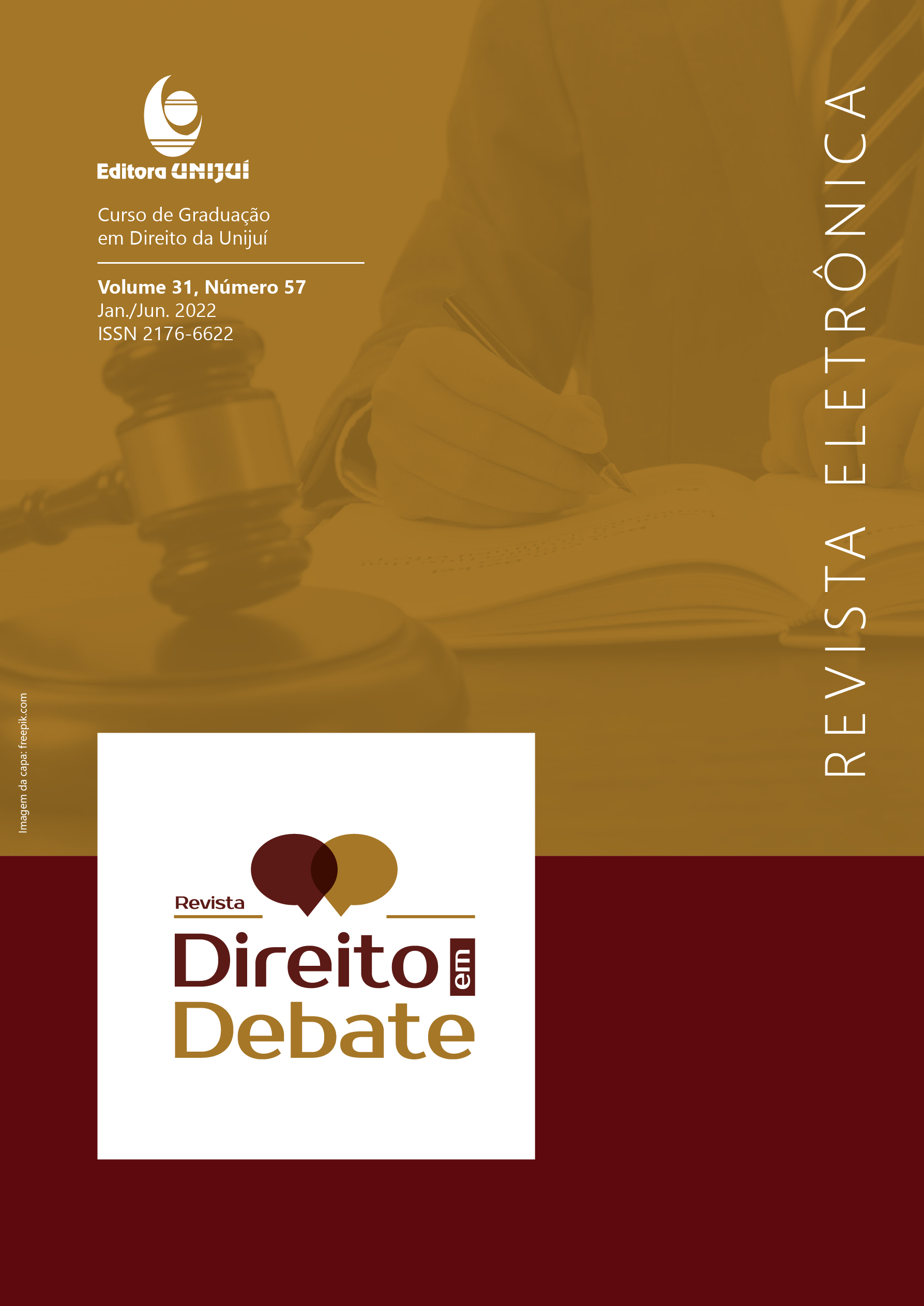Republicanismo, Democracia e Constituição Mista: Tensões e diálogos no constitucionalismo moderno
DOI:
https://doi.org/10.21527/2176-6622.2022.57.10373Palavras-chave:
Republic and democracy; virtue and equality; Mixed constitutionResumo
Este artigo concluiu que a Constituição mista estabeleceu-se mais como resposta aos contextos históricos e sociais do que por escolhas exclusivas e unilaterais de constituintes. Entre os antigos, a Constituição foi teorizada por Aristóteles como resposta à diversidade social da pólis. Sua preocupação é com o homem comum, distante de ostentar a virtude e a frugalidade imaginada pelo racionalismo socrático. Entre os romanos, sua instituição deveu-se à expansão do Império e visava a aplacar o dilema da plebeização do corpo político. Entre os federalistas, solucionou o dilema da inclusividade e moderação do poder no quadro de crescente igualdade social. Como solução para moderar o poder, a teoria da Constituição mista federalista evidenciou-se na separação não mecânica dos poderes, em que os ramos do governo se tornaram arenas de disputas das forças sociais, de forma a se controlarem mutuamente.
Downloads
Publicado
Como Citar
Edição
Seção
Licença
Autores que publicam nesta revista concordam com os seguintes termos:
a. A submissão de trabalho(s) científico(s) original(is) pelos autores, na qualidade de titulares do direito de autor do(s) texto(s) enviado(s) ao periódico, nos termos da Lei 9.610/98, implica na cessão de direitos autorais de publicação na Revista Direito em Debate do(s) artigo(s) aceitos para publicação à Universidade Regional do Noroeste do Estado do Rio Grande do Sul, autorizando-se, ainda, que o(s) trabalho(s) científico(s) aprovado(s) seja(m) divulgado(s) gratuitamente, sem qualquer tipo de ressarcimento a título de direitos autorais, por meio do site da revista e suas bases de dados de indexação e repositórios, para fins de leitura, impressão e/ou download do arquivo do texto, a partir da data de aceitação para fins de publicação. Isto significa que, ao procederem a submissão do(s) artigo(s) à Revista Direito em Debate e, por conseguinte, a cessão gratuita dos direitos autorais relacionados ao trabalho científico enviado, os autores têm plena ciência de que não serão remunerados pela publicação do(s) artigo(s) no periódico.
b. Autores mantém os direitos autorais e concedem à revista o direito de primeira publicação, com o trabalho simultaneamente licenciado sob a Licença Creative Commons Attribution que permite o compartilhamento do trabalho com reconhecimento da autoria e publicação inicial nesta revista.
c. Autores têm autorização para assumir contratos adicionais separadamente, para distribuição não-exclusiva da versão do trabalho publicada nesta revista (ex.: publicar em repositório institucional ou como capítulo de livro), com reconhecimento de autoria e publicação inicial nesta revista.
d. Autores têm permissão e são estimulados a publicar e distribuir seu trabalho online (ex.: em repositórios institucionais ou na sua página pessoal) a qualquer ponto antes ou durante o processo editorial, já que isso pode gerar alterações produtivas, bem como aumentar o impacto e a citação do trabalho publicado (Veja O Efeito do Acesso Livre).
e. O(s) A(s) autores(as) declaram que o texto que está sendo submetido à Revista Direito em Debate respeita as normas de ética em pesquisa e que assumem toda e qualquer responsabilidade quanto ao previsto na resolução Nº 510/2016, do Conselho Nacional de Ética em Pesquisa.
f. Os autores declaram expressamente concordar com os termos da presente Declaração de Direito Autoral, que se aplicará a submissão caso seja publicada por esta Revista.
g. A Revista Direitos em Debate é uma publicação de acesso aberto, o que significa que todo o conteúdo está disponível gratuitamente, sem custo para o usuário ou sua instituição. Os usuários têm permissão para ler, copiar, distribuir, imprimir, pesquisar, criar links para os textos completos dos artigos, ou utilizá-los para qualquer outro propósito legal, sem pedir permissão prévia do editor ou o autor. Estes princípios estão de acordo com a definição BOAI de acesso aberto.










